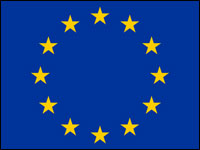
I was disturbed by this week’s story in The New York Times about Google’s ongoing issues with European regulators. The lead is all you need to get a sense of things: “BRUSSELS — A top German official called for Google to be broken up. A French minister pronounced the company a threat to his country’s sovereignty. A European publishing executive likened it to a Wagnerian dragon.”
Really? I would have thought the euro and the draconian austerity program needed to keep it functioning threatened sovereignty more than Google.
What’s troubling is that Google and the European regulators reached a deal on Google’s alleged antitrust activities related to search back in February of this year, according to the article, which prompts the question when is a deal not a deal?
Google, the article goes on to say, “has become a glaring proxy for criticism of an intrusive American government and concern over America’s unmatched technology dominance.” Aha!
It’s too bad that quote comes from Times reporter Danny Hakim and not some European official, because I think it’s spot on and reveals a toxic mindset.
Look, Google might have a philanthropy division — but it is not a philanthropy. It is a money-grubbing corporation like all the others, except that it deals in the future of technology, which understandably gets the Europeans edgy.
Low-Tech Bastion
In the 19th century, European science and technology dominated the world, as did most other things from the continent. Countries that were medium-sized or even tiny by today’s standards dominated the planet with a system of colonies that locked up trade and commerce in general. Then it all got thrown away in the potlatch of the 20th century’s wars, and European science and technology have never been the same.
Cern, which operates the super-collider that enabled scientists to discover the Higgs Boson particle, may be an exception — but microwaves, transistors, TV, integrated circuits, computers, the Internet, cloud computing, social media, and many, many other advances were the brain children of labs that had their principal locations in, shall we say, other time zones.
That Europeans are noticeably concerned about the invasiveness of technology today is quite understandable, but I wonder what the reaction would be if Google were headquartered in France instead of in Silicon Valley. Rather than innovate, it seems that Europeans today are content to consume — and complain about — what others are building.
European history leaves many people concerned about what today’s technologies could do in the hands of the lunatics of yesteryear. However, if you look at all the craziness in the world today, very little of it is being assisted by technology of the information age.
The Malaysian airliner shot down over Ukraine was the victim of a surface-to-air missile perfected in Russia in the 1950s in time to shoot down Gary Power’s U2 spy plane.
Repressive governments try to shut down social media and not necessarily leverage it. The publicized murders of American reporters were sent to the world across the Internet and YouTube, hardly offensive weapons.
Get in the Game
The information revolution is a long way from over. If you read the books by MIT professors Brynjolffeson and McAfee, especially The Second Machine Age, you come to understand that there’s a great deal more to come from the exponential curve that defines Moore’s Law.
Technology is accelerating in both its power and its applications. Already there are many things that our smart machines do better than we do. The approach recommended in the book is to find accommodation — ways that people can leverage smart machines and software to produce superior products and services.
Today’s antipathy toward Google is misplaced, and it is unfortunate that European governments can’t or won’t confront the U.S. more vociferously on its data-gathering activities. Everybody is playing for keeps in the technology world, and there’s a lot at stake.
As Mark Twain famously observed, “history does not repeat itself, but it rhymes.” My personal fear is that the technology revolution somehow will bite us in the anatomy but in a way that we simply don’t foresee right now.
Regulation has its place in the modern world, but if the Europeans are so concerned about Google or any tech vendor, it would be better to regulate in a consistent and ongoing manner rather than, like Lucy, to pull the ball back just as Charlie Brown goes to kick it.
It’s also time for Europeans to get back in the game — to build rival technologies that better suit their needs.






















































